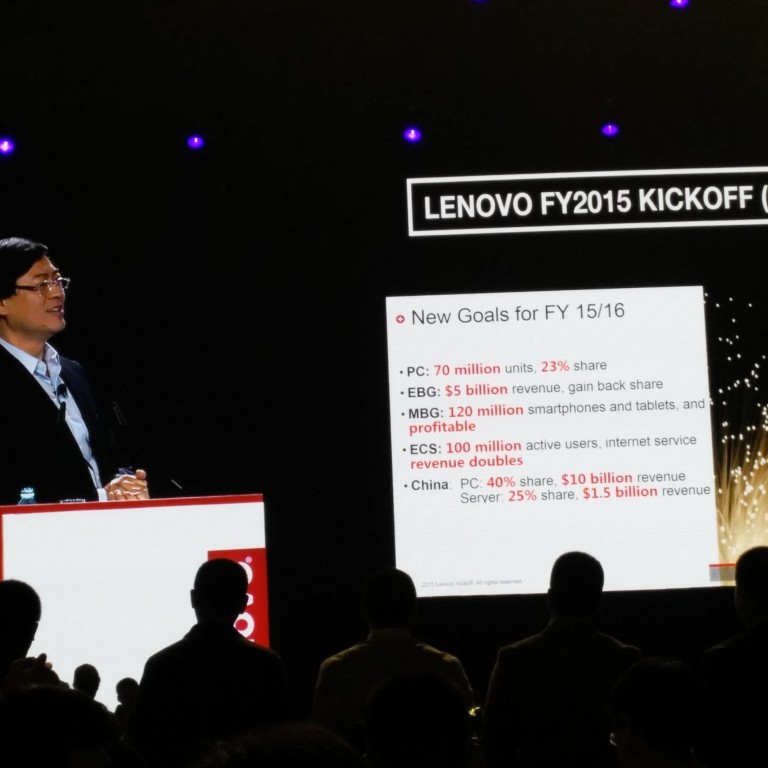
China's Lenovo to make major smartphone push as CEO calls for company 'transformation'
Chinese computer maker Lenovo plans an aggressive push into the growing smartphone market this year, targeting sales of over 100 million units from 76 million currently, and wants to increase its PC sales by about 16 percent, its chief executive said.
Addressing a gathering of over 10,000 enthusiastic staff in Beijing to mark the start of the new financial year, Yang Yuanqing also said that the company must transform itself into a service provider that engages its customers more than just at the initial moment of purchase.
“Last year was a milestone year for us,” Yang told the staff to enthusiastic applause. “Despite many market challenges, we went against the tide and had record sales for all our products.”
Lenovo is the world’s third-largest mobile phone seller with about 6 percent of the market, according to technology research firm IDC. That puts it a long way behind South Korea’s Samsung and Apple, which both have around 20 percent shares. Lenovo bought the Motorola phone brand from Google last year.
In the past year, it sold 76 million smartphones, 50 per cent more than a year ago, and 12 million tablets. Of its sales target this year of 100 million, 40 million would be in China. It also plans to sell 20 million tablets and turn a profit for the division, Yang said.
Lenovo plans to extend its reach as the world’s top PC maker, aiming to sell 70 million PCs this new financial year from 60 million last year and take its global market share to 23 per cent. IDC said that in the first quarter, Lenovo had 19.6 per cent of the global market, while another research firm, Gartner, gave it 18.9 per cent.
In China in particular - a stronghold of its PC revenue - it aims to get 40 per cent of the PC market, an increase from 37 per cent, and bring in US$10 billion in sales.
For its server business in China, it has set a 25 per cent share target, up from 21.5 per cent, and a US$1.5 billion sales target. It also aims to have 100 million global users for its ecosystem and cloud business.
Yang said however that just increasing sales is not enough.
“We must transform ourselves to stay competitive in this age when everything is increasingly connected,” he said. “Many of our operations are very traditional. We must seize the chance to transform or be eliminated.”
“Hardware alone can’t satisfy customers’ needs anymore. Nowadays, it must be integrated with software and cloud services,” he said, urging for its business to pull in more repeated customers and increase interaction with them.
One of the ways to do that is by giving all customers a Lenovo identity so that they can have their data stored on its cloud whatever device they use, he said.
Having a strong social media presence would also lay the foundation for the company’s reforms, he said, encouraging staff to get their own blogs and promote the company on social media.
“It’s really amazing how personal connections made on social media can achieve great results,” he said of his Weibo microblog, launched just months ago but already with 3 million followers.
“One of the things on my Weibo that attracted most comments is my hairstyle. While some say it looks artistic, others bluntly say it looks like a wig,” he said.
“OK, if it gets more people to know about Lenovo, I don’t mind. But I’ve made some effort in it today.”
